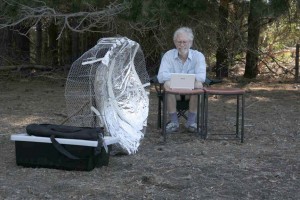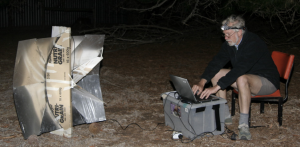I work in remote areas sometimes, where 3G internet and phone connections are too weak to use. My solution was a simple, DIY, parabolic reflector. By pointing the reflector towards the nearest tower there is a significant boost in signal strength. In the situation of my remote area work, we are over 50 km from the nearest antenna (and the antenna is over a ridge). There is no usable signal most of the time without the reflector, but we can get acceptable 3G download speeds using the reflector (weather conditions permitting – I guess we need a bounce from clouds or something of the sort to get the radio signals over the ridge).
Mark 1 was made with a sheet of cardboard covered with alfoil and bent to a parabolic shape using a former something like this: 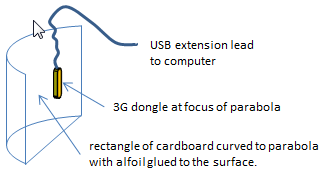
Cut some cardboard to act as a former to hold the parabolic shape. I used the following shape with the dongle to be held at 25 cm from the centre:
Mark 2 became more sophisticated, with a parabolic dish constructed using chicken wire and alfoil (same curve shape as above, but in both vertical and horizontal).
I fixed the alfoil to the chicken mesh using sticky tape, but wind tended to break the contact and the alfoil tore, so I tried mark 3 by moulding papier mache to the mesh wiht flour and water paste, and gluing the foil the papier mache. This worked fine until the first evening, when the possums ate the papier mache (and foil), destroying all my efforts 🙁
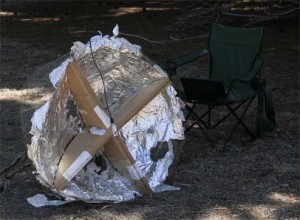
Mark 3 antenna – papier mache over chicken wire with glued on alfoil. The holes are courtesy of the hungry possums who really enjoyed the papier mache made with flour and water paste.
Mark 4 involved a more robust construction using a sheet of aluminium from the hardware store. This proved far more rigid and wind resistant.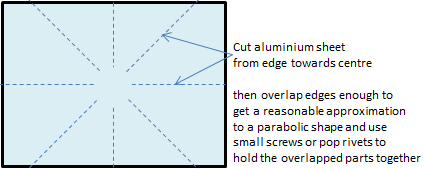
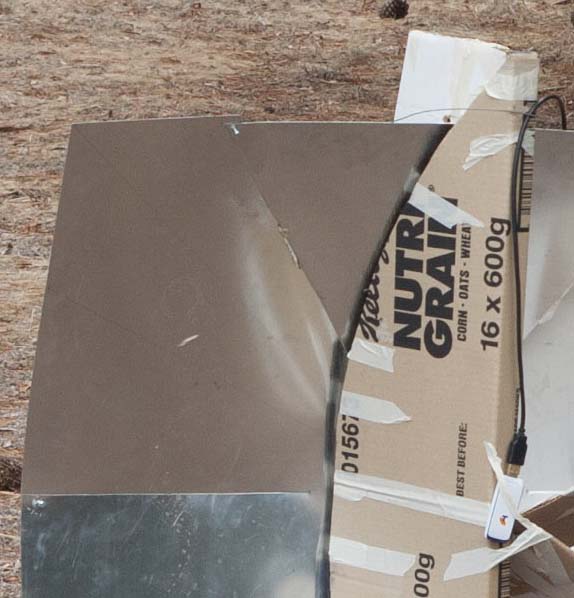
Detail of reflector showing overlapped leaves secured by screws and the cardboard cut to a parabolic shape that I used as a gauge to set the degree of overlap to get the sheet to roughly parabolic shape
For Mark 5 I mounted the Mark 4 reflector onto a wooden frame made using scrap timber:
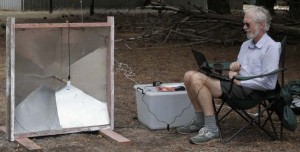
Mark 5 antenna in use. The heavy timber frame stabilises the antenna to prevent it blowing in the wind.
This was a great improvement. Mark 4 was prone to blowing off line in the wind.


